|
In the spring and summer, homeschooling content creators call this "convention season" and it's for good reason. There are so many homeschool conventions, conferences, expos, and days scheduled all over the country during the spring and summer that it warrants its own season.
This post may have affiliate links to homeschool conventions that help fund this website (and give you a good deal, as a coupon is included). We appreciate your support. What does this mean for you, a homeschooler? It means that if you have any question about homeschooling, there will be someone at a homeschool convention that can answer that for you. If you're thinking about changing curriculum, you can browse, look through curriculums--even talk to the curriculum creator in a lot of instances. Here are nine reasons why homeschooling families should attend homeschool conventions: 1. Speakers The first reason is the large variety of homeschooling speakers who pour out their expertise in sessions that are designed to help you and your children. There are keynote speakers that have been homeschooling for years (sometimes decades) and are fighting for you and your children on the national level. They have more encouraging knowledge in their little fingers that most have in their whole hand. Last year's Teach Them Diligently in Pigeon Forge saw Kirk Cameron on stage, then Heidi St. John, and other powerhouse proponents of homeschooling. In smaller sessions you have homeschool content creators, curriculum writers, bloggers, and other homeschoolers who know what they're talking about, and give you that knowledge--and are often free right after the session for a few minutes or available in their booths to talk one-on-one with you. I know that after my session on special needs children last year at Teach Them Diligently-Pigeon Forge, I had a number of parents come to my booth to ask me specific questions about autism, ADHD, and other learning difficulties. They walked away with not only helpful information but also my card for further assistance. Many speakers are like that--or have resources that will help you in your homeschooling journey. Tip: Bring a notebook to write notes, ideas as they come to you in sessions, questions to ask, booths to visit, etc. When you meet another homeschooling family and your families click, use your notebook to write their contact information down. 3. Phenomenal Sessions Every homeschool convention company works tirelessly to bring in speakers who know what they're doing, and have something to say about it, and because of that, participants enjoy phenomenal sessions about a wide range of topics--from Homeschooling 101 to homeschooling special needs kids, to discussing government interference, and everything in between. You literally can gain a wealth of knowledge about homeschooling, and so can your kids. There are many sessions that relate to teenagers, such as choosing a college, or developing your high school transcript (your teens should go to these!). Every convention is different and offers a different slate of topics from which to choose. 3. Exhibit Hall Here's where it gets fun -- and sometimes, overwhelming. There are so many booths exhibiting curriculum, curriculum helps, books, toys, opportunities--that it can get to be a bit much. Take your time, go through each aisle, making note of booths you want to come back and visit later (preferably, by yourself, while your husband or wife watches the kids out in the reception area). I encourage you, if you and your spouse go to homeschool conventions together with the children, to give each spouse an opportunity to wander the exhibit hall alone. Last year, while I worked my booth at Teach Them Diligently-Pigeon Forge, my husband wandered the hall. He came back with a newfound love of homeschooling (yay!) and a lot of resources for our homeschooling daughter. Also, go through the aisles with the children, too. They may see something that encourages them. Plus, it's great to see other homeschooling children and know they're not alone. TIP: Wear very comfortable shoes. Leave the cute heels and flip-flops at home or hotel, and wear your sneakers. You will walk more than you think you will. 4. Children's Programs Many homeschooling conventions will offer childrens' programs for little ones, elementary age, even middle school. When your kids get to be in high school, they can offer volunteer at these childrens' events (especially for Teach Them Diligently events). At some conventions, homeschooling high school graduations are held. Don't be afraid to let your kids be a part of the childrens' programs -- it gives them something to do, new friends to make, and gives you the opportunity to go to the sessions and exhibit hall in peace. Tip: If allergies are a concern, simply pack your child's lunch and snacks, and make sure the staff knows about them. If your child has special needs, make sure the staff knows that, too. 5. Meeting Other Homeschoolers Meeting other homeschooling families is a huge plus when attending homeschooling conventions. You realize you're not alone, and you can bounce ideas off one another. It's a great time of fellowship and meeting new friends. 6. Meeting Homeschooling Content Creators Where else but a homeschooling convention can you actually meet Linda Lacour Hobar, the author of The Mystery of History, and talk with her one-on-one about history and what you liked about the curriculum? You can meet the very people that create your Bible devotions at the Not Consumed booth! You can meet me! I'd love to meet you and show you all the new things that are in my booth this year (you can preview them here). TIP: Homeschooling creators work long hours to create and curate the things you see in their booths. The booths are not cheap, and they're certainly not free. Please do homeschooling content creators a solid and bring either cash or credit cards (most accept both or either) and buy something. It's a kindness--and keeps us going. 7. Buying Next Year's Curriculum Often, you can find incredible deals on your favorite, or a new-to-you curriculum at conventions. Come armed with the credit card and go ahead and purchase it, taking advantage of any sales thay may be going on. Often (but not always), homeschool curriculum creators can ship the materials to your home so you're not lugging around 72 pounds of books throughout the exhibit hall. TIP: Sometimes you'll buy a book and it'll weigh a good bit. Some conventions give swag bags but they're not hefty enough to carry a bunch of books. Bring a hefty totebag, an extra stroller, or something to carry your loot. Last year a family brought a wagon -- had their kids on each end and their haul in the middle. It was fantastic! 8. Traveling [according to my daughter who was scientifically polled for this article (meaning she walked in while I was writing and I asked her what the biggest benefit to going to homeschool conventions was to her)], is a side benefit of going to homeschool conventions. When you travel to a distant place for a convention, make it a fun time. Pigeon Forge (where Teach Them Diligently will be at this year) offers a huge amount of things to do besides going to the convention. Where else can you visit a Titanic exhibit, see a building with King Kong on it, and visit an upside-down house? We've stopped at educational and fun places on the way to a convention in Texas -- it breaks up the trip and adds a fun element to homeschool conventions (and makes that more educational). 9. Rededicating Your Family to the Homeschool Ideal One of the most important aspects of going to a homeschool convention is the energy and confirmation of the "why" we homeschool. If you're teetering on the brink of giving up--by all means, go to a homeschool convention. Between the speakers, the keynotes, the sessions, meeting other homeschoolers, and exploring the booths in the exhibit halls, you will gain a new perspective on homeschooling and maybe recommit to it. It's important, especially in the culture in which we live as Christians, to see the importance of homeschooling. Attending homeschooling conventions can do that. TIP: The food in convention venues is often pretty expensive. If you can (according to venue policies), pack your family's lunch. If you can't (because of policies), find a hotel near by in which to stay, and leave for an hour for lunch in your hotel, and come back. Or, keep the cooler in your car and go out to your car for lunch. Here's another tip: after a long day of conventioning, most of the time you just want to go back to the hotel. Bring a slow cooker with you from home, start it in the morning, and by the late afternoon and evening, dinner is ready for you when you get back to the hotel. Throw the kids in the pool, then shower everyone--it'll be an easy bedtime for everyone, just to get up the next day and either convention some more, or get on the road back home. Happy Homeschooling! ~ Terrie (C) 2023 Terrie Bentley McKee ALL RIGHTS RESERVED
0 Comments
I am in a number of social media homeschool groups, and one question I see over and over from new homeschoolers is this: what is the best curriculum to use for my child? Here's the quick answer: there isn't any, and they all are. Here's the long answer: The best curriculum is one that you choose for your child, based on your child's developmental needs and abilities. With that being said, let's explore how to choose the best homeschool curriculum.
This post may contain affiliate links. As an Amazon affiliate, I earn a small commission from purchases made using these links. In addition, all curriculum suggestions are personally vetted by me and my daughter. Encourages Learning This may be a "duh" point but you want your curriculum to not be boring. If you get bored reading it (and I encourage you to read a couple pages, and skim through an entire book before purchasing any textbook), then your child will be bored--and you don't want that. You want the curriculum you choose to encourage your child to want to learn about the subject matter, whether that's math or history. Children have an innate curiosity about them, and the curriculum you choose should present insightful text, questions that make your child think, and the potential for additional projects, papers, or problems to solve. Any curriculum you choose for any subject should spur in your child a love for learning. The Charlotte Mason homeschool method utilizes the addition of living books, which are engaging books that bring the subject alive. Any time you supplement any curriculum you purchase using living books, you add a deeper level of understanding into the subject matter. SUGGESTIONS: I really like the history curriculum from Notgrass History, due to the amount of possible projects and other assignments. I also really like Rabbit Trails Homeschool's history curriculum, because it's literature based using living books (take 10% off with our coupon code H1C). Rabbit Trails' science curriculum is top-notch, as well. For Bible studies, I love Not Consumed's studies, which combine biblical truth with practical teachings (I also love their student planner!). Everyday Graces Homeschool has beautiful Charlotte Mason-inspired studies. Teachability Not only should the curriculum encourage a love of learning for your child, but it should also be fun to teach. When you learn as the teacher along with your child, you're more invested into the curriculum and in your homeschool. If the curriculum is too hard to teach, you're not going to enjoy it. I have used curriculum that had great information, decent workbooks, but were tedious to teach. On the other hand, I've used old-school textbooks that had the text in smaller chunks with questions to reinforce retention. If you use textbooks that have a large amount of text, I suggest you break it up into chunks for your child, and if the workbook doesn't have questions for retention for that section, make up your own questions. I've done this many times. Realistically, you are the teacher. so you can create questions, you can download worksheets, whatever you want to do. There are many resources that you can use to supplement your curriculum and help in teaching, such as the following:
SUGGESTIONS: Schoolhouse Teachers makes it easy to teach due to the scopes and sequences are laid out for each course. Many courses are taught via video, and others lay out the courses for you. Plus, if you join as a Silver member, you gain many benefits, such as the AppleCore program. This online program gives you the ability to track attendance, grades, report cards, and transcripts. I have also used old school textbooks that I purchased at a significant savings from Ebay.. Ownership Before the start of a new school year, before we buy curriculum, my husband and I always ask our daughter what she wants to learn in history and science. This ability to choose provides a sense of ownership and buy-in with your child. If your child wants to have a say in his or her education, by all means, let your child have that freedom, but within reason. Often, especially for science, all it takes for buy-in is to involve your child in science labs. A good source for labs (and homeschool curriculum) is Home Science Tools. For both science and history, field trips are often incredible ways to make the subjects come alive for your child. Allow your student have some say in field trips, but always follow up with the field trips by asking what your child learned or have them complete this field trip report. Developmental Needs and Abilities In choosing your homeschool curriculum, one thing you must do is take into account your child's developmental needs and abilities. You can use the math placement tests from Teaching Textbooks to discover what exact level your child is on, and adjust accordingly. Sonlight also has placement tests, not only for math but for reading and language arts, as well. If your child has special needs, you will want to teach him or her based on their developmental level -- not based on age or technical grade. You can teach subjects on different levels, for example, if your child is 12 years old and technically in the seventh grade, but because of her ADHD or his autism is developmentally in the fourth grade in language arts and tenth grade in math, teach the child on the developmental level. If your child is in the ninth grade by his age but developmentally in the third grade, teach him in the third grade. In this case, I would also strongly consider adding life skills to his curriculum and not force the academics too much. Meet his needs where they're at, but don't frustrate him--or yourself. Catalogs While you're on Sonlight's website, go ahead and order their catalog. Do an Internet search for "homeschool curriculum provider" and order all the catalogs you can. Using these, you can get an idea of scope and sequence, what they offer, what you can offer in your homeschool, and what electives exist. Apologia has free homeschool resources on their resources page, such as a homeschool curriculum planning guide, podcasts, and videos to help you in the homeschooling journey. Homeschooling is a very individual thing, and you can't have a one-size fits all approach to it. What works for my homeschool (and therefore is my "best" homeschool curriculum) may not be a good fit for your homeschool, and therefore would not be your "best homeschool curriculum." The best thing to do is to examine first why you're homeschooling, what your goals are as a homeschool and for each individual child, and choose curriculum based on your family's lifestyle and goals. For my family, we travel a good bit for my husband's wheelchair basketball team (you can see why he's in a wheelchair in this book) so we do a good bit of roadschooling, or homeschool on the road, so an online curriculum wouldn't work for us.. You may have a very strict homeschool budget, and need to find online resources that would be easy to teach, encompass all the subjects, yet be affordable (you can totally do that, too!) and can't buy a total big-box curriculum. There's nothing wrong with buying workbooks that you find at discount stores or at teacher supply shops and using those. Be sure to read my blog post on homeschooling on a budget! No matter the homeschool curriculum you choose, remember than you are homeschooling-- the emphasis should be on the relationships you have with your children and building them up while learning. Learning doesn't just happen with books; it happens while you're cooking or cleaning the house, while your husband engages with your child and teaches her how to change the oil in the car, or how to make doctor appointments. It's about doing life together. All my best, Terrie (C) 2022 Terrie Bentley McKee ALL RIGHTS RESERVED There are a myriad of different reasons why people choose to homeschool their children: there is the economic benefit of avoiding high private school fees; there is the convenience of scheduling schooling around other family activities; if a child has special needs that aren't being met in public school; or you don't agree with public schools' curriculum choices.
One of the most important benefits of homeschooling is the flexibility with which you can tailor your child’s education. It is a well known fact that every individual has individual needs, and homeschooling allows you to create a learning environment that suits your child particularly. When you involve your child in that process, you create buy-in and ownership of your homeschool within your child. When you undergo homeschooling, it is important that you have a clear curriculum, mindset, and a plan to execute it. But within that plan, you should understand that you have a tremendous amount of flexibility: there are many different ways that a child can learn something, and many different things to learn in a given subject. One of the best ways that you can ensure a high level of learning retention is to encourage your child to take a personal interest in his or her education. Although this may seem obvious, many people growing up who went though a traditional school system will probably agree that their education was received in an authoritative way: schooling and your education was something that was done to you, not with you. When homeschooling, however, you can take advantage of the almost unlimited flexibility at your disposal and let your child take a more active role. While you can’t, obviously, let your child do whatever he or she wants education-wise, you should always explain to him or her a given education plan, and see what he thinks. Each year in the spring, my husband and I ask our daughter what she would like to learn about in history and science the next school year. While she doesn't have the flexibility to choose what she learns in math or language arts, she enjoys choosing what she learns in history and science, and therefore has more buy-in. For example, when you start your school day, outline the plan for the day with your child. Depending on his or her age you can also explain the reasoning behind the plan. If there are any things the child seems averse to doing, try and take them seriously. You should not, of course, avoid certain subjects or activities simply because your child doesn’t like them. You should, however, ask your child why he or she doesn’t like something in the day’s plan, and to suggest alternatives. In many cases you will be pleasantly surprised by what your child comes up with, and be able to incorporate it into the day’s work. As much as possible, you should have a list of alternatives in mind for assigned activities. The idea is to try and think of alternative activities that accomplish the same task. If your child protests against a certain exercise, then, you can offer them an alternative. This can be extremely effective in getting your children to learn material that they dislike. Oftentimes the child simply has to feel that he or she is more in control of the situation to enjoy it. Even though you are ultimately controlling your child’s education, by granting them small allowances and choices, while still sticking with the larger picture, everybody wins: your child feels he is doing what he wants to do, and you are still teaching your child what you want him to learn. It's that time of the year: birds are singing, flowers blooming, pollen on the air...and homeschoolers fight homeschool with every fiber of their being. Yet, you as the homeschooling parent, want--need--them to finish something related to homeschool. Your house is a mess, your kids aren't listening to you, and you are overwhelmed.
Homeschool doesn't have to be overwhelming but it often can be. Distractions get in the way of both parent and child, and the academic part of homeschooling can quickly feel like a chore. Here are some ways to manage an overwhelming homeschool life: Have a change of scenery As I write this, my daughter is beside me on our deck. We're sitting on a bench together, papers and books and laptop before us on a table. Birds are chirping, our chickens are clucking, the duck is quacking, and I expect Carl, our rooster, to crow any moment. Carolina blue skies are overhead, dotted by big fluffy clouds. It's a glorious day--and we are homeschooling. She's working a word search for spelling. The thing is, we just started--and it's already 12:03 in the afternoon. It's nearly impossible for us to start in the early morning hours, so we start when we can: after animals have been fed, breakfast eaten, and clothes changed. Sometimes, a change of scenery, like coming outside on a gorgeous day, can help a great deal. Take materials to the park with a big blanket, or go to the library. Sit at a library table and, quietly, do the lessons. Minimize distractions The biggest distraction for my daughter are screens. Her tablet, her borrowing my phone--they all have a tendency to suck time and motivation away from her. One thing we're going to do, starting tomorrow, is to institute a new family rule: no screens until academics are finished and chores are done. I say tomorrow because this is an ongoing issue and, frankly, one I just came up with. When you're overwhelmed, you have to come up with things as you go to see what works and what doesn't. Curriculum Here me out: you don't have to finish the curriculum. If academics are hurting your relationship with your child, stop the academics. Take a couple weeks off and do fun things: plant a garden, visit museums or parks, rearrange the child's room--do things that are out-of-the-ordinary. Go for long nature walks and talk about what you see. Then, come back to academics a little at a time. Not even public schools finish entire math books. The purpose of homeschool is to cultivate a relationship with your child and institute a love of learning. If learning has become a form of torture for you both, it's time to give it a rest. Try something new, like just reading the history book aloud. Do science projects. There's a caveat to this, though: if you have a high school-level student, it's important for the sake of the transcript that curriculums do get finished. Have a heart-to-heart with your student and just lay it out: you must push through the curriculum to graduate high school. A lot of life is simply pushing through. We need to make sure our children understand that. Take time for yourself It's one thing for the students to be overwhelmed; it's another when the homeschooling parent gets overwhelmed. Know that it's perfectly okay to reach out to another homeschooling family and ask if they want to trade time. You invite another group of homeschooling children to your home, with their academics they're working on, and all the kids work on their individual tasks at your table, while the visiting kids' mom gets a much-needed break. Maybe she'll get her hair done, or nails, or just have a couple hours for a mental health break. Then, she watches your kids while you get a little break. Get organized Take a week off academic homeschool and make it a homeschooling project to organize parts of the house that are cluttered and overwhelming. If you use your dining room for homeschool, as I do, try to figure out a way to store homeschool materials when they're not being used so you can actually use the table to dine on. If you are blessed enough to have a dedicated homeschool space, take a day or two to organize and redecorate it--particularly before starting a new grade or homeschool year. Biblical characters battled being overwhelmed, too Christian homeschoolers often think that they're the only ones to get overwhelmed. Just because a biblical character was close to God doesn't mean they didn't battle being overwhelmed. David, Jeremiah, Elijah--even Jesus in the Garden of Gethsemane were overwhelmed at some point in their lives. We can learn from them and how they handled being overwhelmed. Having an active and constant prayer life, being in the Word, and surrounding yourselves with praying friends can all help you in being overwhelmed. Everyone faces a season of being overwhelmed. I feel like I am a chronic overwhelmer--to the point that I needed help, so I wrote a book about how biblical characters handled being overwhelmed and what we can learn from them. I learned so much during the writing of this book! Overwhelmed: Biblical and Practical Ways to Manage a Crazy-Busy Homeschool Life can be found in my online store (autographed) or non-autographed books are available on Amazon. Balancing homeschooling, parenting, discipleship, home management, and life can be extraordinarily tricky. In this mercifully brief book for overwhelmed homeschool parents, I give biblical and practical strategies on how to manage a crazy-busy homeschool life. Using Scripture and practical suggestions, I encourage parents who are caregivers and homeschooling, and parents who are homeschooling children with special needs. In addition, I show how biblical figures handled stress, and applies those lessons to real-world issues homeschoolers face. Please know that you are not alone! Every homeschooling parent feels overwhelmed at times, and more in some seasons. It's important to recognize when you're reaching that point, and to do something about it. In Christ, Terrie (C) 2022 Terrie Bentley McKee ALL RIGHTS RESERVED "Socialization" is one of the most common fears for any family contemplating homeschooling their child. This is the wrong word and concept, though. Dogs and cats are socialized. Humans are taught how to interact with others, ideally, their peers of the same age and socioeconomic background, and others who are not like them. Homeschooling can seem like isolating your child, but it really doesn’t have to end up like that. In fact, because of the nature of homeschool groups and activities, homeschoolers often successfully interact with a wide variety of people. Children can still develop their "socialization" skills in many other ways if they don’t go to public or private schools. Kids tend to learn their best socialization skills from activities they do with their own families, not from following the in-crowd at school. In fact, when my daughter was in public school for 2-1/2 years, we constantly heard that she spent too much time socializing. When I'd visit her school at lunchtime, kids were often told where to sit, when to talk, and quite often, her class had lost the privilege of socializing. When homeschooling, don't get caught up in the lie that your homeschooler won't be "socialized." If anything, that's a good thing. For my daughter, I want her to grow up to know how to interact with a wide variety of people. Here are five ways to do just that. Family Activities A good place to start is to plan a lot of activities that the whole family can do together. Playing board games as a family teaches teamwork, patience, taking turns, and how to be a sore loser (or a humble winner). Doing outside activities as a family encourages family dynamics and working together toward an end goal. Those are good things to teach; after all, you are rearing a man or woman, not raising a child. Your child won't be little forever and he or she needs to know how to work with people. Field Trips and Parks Field trips to sightseeing areas or just spending time at the local parks can allow them to interact with other kids for brief periods of time while you monitor their activities. When my daughter and I go to the park, she often organizes the other kids there in games of tag or hide-and-seek. Field trips are not just educational academically, but they also offer opportunities to interact with adults and children of all ages. Encourage your child to take the lead on talking with the ticket clerk or the gift shop attendant. Neighborhood They can also develop their peer-to-peer social skills by mingling with other kids that live in your neighborhood. They can develop friendships with other kids even if they’re homeschooled and their peers are not. Don't dismiss making friends in your own neighborhood. If you don't want your child to go to other homes (I know I don't), you can set your yard up as "the" place to be. A trampoline, swingset, yard games, and other activities can be child magnets. Keep a supply of child-friendly snacks and drinks at the ready and you're set. Invite the parents over, too, for a cookout, and build community and friendships across the board. Local Groups Socialization doesn’t just occur within the walls of a traditional school. Allow your child to join local groups for kids their age. Trail Life for boys and American Heritage Girls are popular faith-based groups for children to join and develop lifelong friendships. They learn new things and do activities together as a group. Some churches have youth groups children can join as well. Or, your child could participate in little league baseball, take swimming lessons, or participate in some sort of homeschool sports team. We recently signed our daughter up to take tennis lessons at a local recreational club operated by the city. Although we count this as PE, since she's interacting with other girls a little younger and older than she is, it helps her make friends and interact with people while doing something fun. In Public Teach your children to happily answer questions about homeschooling to other people they meet. Sometimes other kids can be so inquisitive that they want to ask many questions, and this helps break the ice for both of them - allowing a healthy friendship to develop. Our public library has a homeschool day once a month which is great because it enables other homeschoolers to get to know one another and talk. Encourage your child to ask for help from adults in stores who are wearing nametags. You need to focus on enhancing your children’s socialization skills, but never force them to find friends. The only way this can successfully happen is if it happens naturally. The more forced it is, the more likely your child won’t be able to make close bonds with his or her peers. To help develop your child’s socialization skills, just make sure they’re able to interact with peers their age from time to time. Even being around grown-ups can help foster a positive attitude and social skill that far exceeds that of kids their age. Check out the new podcast:Gratitude is an essential value children need to learn at a young age, but how exactly do you teach it? Teaching gratitude does not have to be hard at all! Here are 16 super fun activities that will teach your child to be thankful for everything in their life.
Read Books There are so many amazing books that will teach your child about being thankful. Reading books brings so many great benefits, and your child will love the chance to snuggle up and read books with you! Some of our favorites include:
Make a Gratitude Chain or Tree Gratitude chains or trees are fun and easy crafts to help your child share what they are grateful for. You can make a chain for every day in November with something they are grateful for to hang around their room. Or, create a tree and add a leaf every day with something they are thankful for. With these, you can go as long as you want. Dinner Table Gratitude Tradition Make it a tradition to go around the dinner table each night and share one thing you were thankful for about today. It can be big or small. Not only will this help them find things to be grateful for, but it will also show them there is always something good about their day, which in turn teaches them to be optimistic. This gratitude tradition will also keep your family close as you talk and share about your days while eating dinner. Competition There are so many fun ways to have gratitude competitions. You can see who can write down the most things they are grateful for in one minute. Make it as short or as long as your child needs. You can also see how many you can name throughout your day. Make these competitions fun and light, nothing too serious. Write Thank You Notes Teach your child to write thank you notes from an early age. They can paint and draw the cards themselves to build their creative side as well. Writing thank you notes will teach gratitude and manners to your child as they learn they need to share their gratitude with others. Rainbow Kind of Days This is one that will hopefully stick with your child forever. Children need to know those bad days will happen, but it doesn't mean the entire day has to suck. Have what is called a "rainbow kind of day." Use this phrase when you have a bad day. Talk about your day and the struggles you went through. Then, tell your child about your rainbow. Just like all storms, during the storm, everything is nasty. But in the end, there is always a beautiful rainbow. This will help your child focus on the good and share their bad times with you. Bedtime Routine If you want to make gratitude a habit for your child, include it in your bedtime routine. Every night before bed, have them share what they were grateful for that day. Make sure you share what you were grateful for that day -- and be sure to include your child! Gratitude Jar Find an empty jar and have your child decorate it however they please. Then, put notes of things you were grateful for inside the jar every day. On December 31, as part of a New Year's celebration, empty it and read through everything you wrote! Gratitude Journal A gratitude journal is a great way to teach your child about being thankful. Get them a journal, or have them make their own. Then try to make it a habit to write in their journals every single day. This will create a habit and help your child learn the importance of keeping a journal. Thankful for Senses Sensory play is always a great way to teach something! You can do this in so many different ways. You can create a sensory bin filled with things your child loves and have them explore and be thankful for each item. Or you can ask your child something they love for each of their senses:
Gratitude Bingo Gratitude Bingo is not a daily activity but rather a week or month-long event. Give your child a bingo card with gratitude prompts inside each square. You can make your own or get one online. Some square examples include:
Thankful Pumpkin Instead of carving your pumpkin, write out all the things your entire family is grateful for. Try to fill the pumpkin with your writing! I use a white pumpkin to do this in the fall and it's a cherished part of our fall decor. Scavenger Hunt Children love scavenger hunts! You can make this as easy or as hard as your child needs. Make hints about things you are grateful for to have them look for until they find the prize. Or, let them make their own scavenger hunt and give them prompts. For example, “Look for something you are grateful to wear.” Grateful Photo Challenge For those children who love to take pictures, have them go on a photo challenge! They can use your phone or a kid's camera. You can choose to give them a list of things to take pictures of or let them find 20 things they are grateful for to take a picture of. Drawing or Painting While it may seem so simple, children love a chance to draw or paint freely. Don’t lead this activity; let your child draw whatever comes to their mind. Process art is much more beneficial than having your child copy a cute turkey you saw on Pinterest. Be sure to hang up your child’s artwork and share how thankful you are for it! Gratitude Walk Many children have a lot of energy that they love to use, so go on a gratitude walk! This can be a simple nature walk, but talk about things you see, hear, smell, and touch that you are grateful for during your walk. These 16 gratitude activities will help your child learn this important skill in a fun way! Learning through play is more beneficial and lots more fun for kids of all ages! What other ways to you like to teach your child about gratitude? Christmas is full of sights, sounds, smells, and gifts -- and it can be overwhelming. To connect your homeschooler with the true meaning of Christmas, and encourage learning at the same time, I've curated these 15 Christmas ideas for homeschoolers and their parents.
This post may contain affiliate links, which provide a small stipend to me when you click and purchase using them. This helps maintain this website and the Homeschooling One Child ministry. I thank you for your support. Unto Us a Child is Born In 2015, I wrote an Advent devotional with essays and questions that can be used as a small group study or personal devotional. Unto Us a Child is Born would also make a great stocking stuffer. Building a Snowman A fun activity if you have snow at Christmas or any time during the winter is to build a snowman. Go to thrift shops and find hats and scarves that would make any snow person proud, and keep in a tubbie for safekeeping until snow arrives. Just don't do what I did growing up: I was being chased by my snowball-wielding brother and ran right into our mega-eight-foot giant snowman, frozen solid the night before. That hurt! Rabbit Trails through Christmas Take your holiday studies down a rabbit trail with Rabbit Trails through Christmas! Learn about the Three Kings with the book Baboushka, incorporate copy work, get hands on, and read some amazing Christmas books this season! (books not included). This digital download lesson is meant to be used over one-two weeks -- perfect for Christmas! ChristianBook With the lack of brick-and-mortar Christian bookstores, it's hard to browse and find great deals on Christian-themed holiday decor, supplies, greeting cards, and gifts. ChristianBook.com is my go-to source for all things faith-based and it offers incredible deals on Christmas items. Plus, shipping is often very quick--an important feature during this season. Check out all these stocking stuffers! Hand Made Olive Wood Nativities and Manger Sets from Bethlehem Several years ago, my in-laws traveled to Israel and returned with a gift for my husband: a nativity made out of olive wood from the Holy Land. It is a treasured piece of our Christmas decor. You too can have a handmade olive wood nativity from Bethlehem from The Jerusalem Export House. They also have many other faith-based items. Answers in Genesis Home of the Ark, the Answers in Genesis brings apologetics to a whole new level. Their book, The War on Christmas, answers these and other important questions: What is the truth about Christmas? Why does so much controversy cloud the true meaning and history of this sacred holiday? How can Christian families respond in a culture that seems to be declaring war on truth and rewriting reality? Find it at Answers in Genesis' store (you'll need to plug the title into the search bar). Home Science Tools Give the gift of science this year (including some awesome stocking stuffers) through Home Science Tools, the place where science comes alive and is extremely homeschool-friendly. Access their gift page here or just browse for next year's science curriculum -- or lab kits for upcoming science experiments. Gingerbread House Building Every year, my family enjoys a heated gingerbread house competition. I buy pre-made gingerbread houses and search on Pinterest for creative decor items (check out my board here for ideas and inspiration!), and share these with family. Buying pre-made houses (and I've also seen gingerbread barns, trains, ninjas, and chicken coops!) eliminates the hassle of construction and goes right to the fun part: decorating. Make sure you have plenty of decor items on hand with lots of royal icing. We actually have a gingerbread house competition each Christmas Eve after eating a dinner of heavy appetizers. For wee little ones, you can give them either their own little gingerbread cookies to decorate, gingerbread house stickers, or wee little gingerbread houses that come in a village set to decorate. Reading Luke I'm sure you've read about this one before, but it bears repeating: since there are 24 days until Christmas Day, reading a chapter of The Gospel of Luke each day aloud to your family gets an entire book read, since Luke has 24 chapters. You start reading about the birth of Christ, and it goes through His life, death, and resurrection--the very reason He came to earth in the first place. What a great habit to start, to read a chapter every night of Scripture to your family--and what a great time to start that habit. Quiet Time In the hustle and bustle of Christmas, we often forget to just rest: rest in Jesus and remember His birth, life, and death--and resurrection. This holiday season, make sure you take time to savor the time. Make some hot cocoa, turn off all the lights except for your Christmas tree, and just be quiet. Watch the lights seem to twinkle in the darkness, and meditate on Christ being the Light of the World. Build quiet time into your Christmas schedule for yourself and your family. Baking Baking is science, mathematics, art, and life skills all rolled into one. Take a few days and suspend book work for some serious baking. Ask informal (suspicious?) questions to your children about fractions as they measure flour and sugar; talk about what colors, combined with others, make other colors as they mix icing. Making Christmas cookies and other goodies is a terrific way to spend time together as a family doing homeschool when kids don't even realize they're doing school. Lights Driving around neighborhoods looking at Christmas lights is a fun family activity. Some places even have drive-through mega light exhibitions that, for a per-car fee, you can drive through. Seeing Christmas lights always puts a twinkle in my eye (pun totally intended) and gets me into the holiday spirit. Bringing along a thermos of hot cocoa, cups, and playing Christmas songs on the CD player will further the experience. Learning about Christmas songs Especially for older homeschoolers, studying the origin and theology of well-known Christmas songs is a great way to gain a deeper appreciation for the songs we sing at Advent and for the story of Jesus' birth. These books, electronic and audio books, as well as CDs, will give your family lots to think about and discuss about beloved Christmas songs. Happy Birthday Party In the busyness of Christmas, sometimes we forget that it's Jesus' Birthday. Kids do love birthday parties, so allow them to make a special cake, complete with this amazing cake topper, and served on special birthday plates and decor to celebrate Jesus' birth. Talk about the gifts the Wise Men brought the Baby Jesus, and ask them what gifts could they give Him? It will open up some fantastic discussion and insight into their discipleship journey. Time As homeschoolers, we often think that because we homeschool, we already spend quite a bit of time with our kids. I know I am guilty of thinking that. At Christmas, though, we really need to be intentional with our time and show our kids that Christmas is not about getting the latest gaming system, or a bunch of clothes, or decorating, though all that is fun and exciting. It's about celebrating, together as a family, Jesus' incredible, supernatural, and miraculous birth. Yes, we decorate - but don't we decorate or at least acknowledge our own birthdays? Yes, we give gifts - but didn't the Wise Men give gifts to the Baby Jesus? If we take the time and explain why we do what we do when it comes to the intentionality of the Advent season, our kids will learn it's not about some dude in a red suit or fruitcake or getting an annual package of socks and underwear. It's about so much more: it's all about Jesus. Merry Christmas! Terrie (C) 2021 Terrie Bentley McKee ALL RIGHTS RESERVED As I write this, my daughter has just arose from her bed, an hour past the time when I first told her to wake up and a good two hours since her alarm clock went off. She's 11, and the source of great joy and laughter--and the source of great aggravation and tear-filled days. She can make homeschool so fun and exciting--and she can also make it just plain hard. Harder than it needs to be.
Do you feel me? I want to be able to take her on exciting and educational field trips, full of inspiration and fun, and I'd love to do interesting crafts and projects with her--but with her attitude, just doing textbook work is like pulling teeth without the numb shot. So we don't do many field trips or special days because, when we do them, they feel like I'm rewarding behavior that I'd rather not reward. I have this vision of our homeschool is supposed to be: one of encouragement and discipleship, where my daughter wants to learn and enjoys learning, and I enjoy being her guide on this journey. But on difficult days in which she cops a pre-teen attitude or is intent on running me over while she drives the struggle bus, it's anything but enjoyable or encouraging. How to handle a hard day Honestly, the best way I've found to handle a hard day -- or a hard season -- is to get Laura's dad involved. Often, a call or, like this morning, a text, from him often can persuade her to turn her act around and do her work without sass. Parents must be on the same page with homeschooling (and parenting) or the ship is sunk. Other ways I handle hard days are to take breaks, have conversations about expectations, and make sure my child understands that I am her mother, and she will treat me with respect. We allow the television shows our kids watch influence them too much, and they mimic what they see on television: kids who know more than their parents; weak and ineffective parents who allow their kids to run roughshod over them; or children who have too much say in the goings-on in a household. You are the parent; be the parent. It's one thing to ask for your child's opinion on things; it's quite another to allow the child, who developmentally is not ready, to make sweeping declarations about how the household will be run. Eye-opening conversations In the conversations I have with my daughter, I ask her what she wants from homeschool: more arts and crafts, more music, more fun. I explain to her those are all good things and they can be done--but math, spelling, language arts, and history are also important, as is science. Incorporate arts and crafts, music, and fun in homeschool -- there are labs you can do for science, and making dioramas in history is always a good way to learn. I also ask my daughter if there are any particular things she would like to study. Last year, it was astronomy, and this year, human anatomy. That way, if your child chooses the topic, you get at least some buy-in to what you're teaching. Consider the curriculum Sometimes, you need to consider the source of the frustration. Often, it's the very curriculum you're using that's at the root of the issues. Don't be afraid to change curriculum, or alter it in some way. I sometimes use a science or history curriculum as the text but find worksheets or projects on such websites as Education.com or Teacherspayteachers. I also use puzzles, games, and arts and crafts to supplement a curriculum. Make it your own When you've seen one homeschool, you've seen one homeschool. Stop comparing your homeschool or homeschool space with others, as comparison breeds the lack of contentment. You're not doing public school or school-at-home, you're homeschooling, and you can make it what you wish. Hard days are bound to happen. We don't live in bubbles, and we're all humans. The beautiful thing is, every day comes with new mercies and graces, so extend new mercy and grace to yourself, and your child, every day. If something isn't working, fix it and don't dwell on it. But, if a pattern emerges, figure out what's behind the pattern and deal with it. In Christ, Terrie (C) 2021 Terrie Bentley McKee ALL RIGHTS RESERVED
Oh the humanity! When you've made all these plans and you're expecting a joyous, Pinterest-perfect homeschool day...then your sour child comes to the table with an attitude and half...then a crayon breaks and it's the Third World War.
We've all had those days. I've been known to threaten to send my daughter to public school on a number of occasions. Over the years, though, I've found a few things that work to either prevent or turn around difficult homeschool days. Structure Some children thrive on a loose schedule; they enjoy the freedom this allows and the ability to study what they want, when they want. Other children require structure: a set lineup of the same subjects that doesn't change. If you confuse these two, often, a child will protest [loudly] -- a younger child won't know why he is arguing, and an older one will just refuse to work. Figure out what your child needs and do that -- even if it's antithetical to what you'd want. Participation Grades Last year, my daughter had many, many bad days and honestly, homeschooling was a chore for both of us. She lacked incentive for doing much of anything. This year, though, I started the schoolyear out by telling her she was going to have "participation grades" every day. If she did her work like it was asked of her, without complaining or whining, she would get a 100 for the day. If she whined, complained, argued, or simply refused to work, her daily participation grade would reflect that. Granted, she's in middle school and can handle this, but still, I'm hopeful it will make a difference. Take Breaks Plowing through subject after subject can hurt retention and cause a kid's eyes to glaze over. Have the child take a good 15-minute break at the end of every three subjects, or a five-minute break after each subject. You'll find that if a child has some down time, retention and attention improve. Today, between spelling and math, my daughter and I went out and shot some hoops at the basketball goal. There's nothing wrong with taking a recess break every now and then. Sometimes, you have seasons in which everything goes wrong. Last year, my mother was diagnosed with cancer in mid-September and died October 1. After that was the memorial service, emptying her apartment, dealing with legal matters...and I had no energy whatsoever for homeschool, or writing, or anything. So we took an extended break. I told Laura, who was dealing with her own grief, to just read if she felt like it. By the time mid-November came, we hopped back on the homeschool horse and starting riding again. We picked back up where we left off and just dealt with it. And you know what? It was okay. We could not handle another thing, and that's the beauty of homeschool. Laura learned more about dealing with the stages of grief and life than anything...and that will carry her in real life more than diagramming sentences ever could. Change Curriculum Sure, you've invested a lot of money in curriculum. But if the child is struggling with it, or the structure of it, your investment has already tanked. Go ahead, get a different curriculum, or use a variety of curricula for subjects. There's no one saying you have to use the same publisher for all your subjects. I used a grammar curriculum once and my child hated it--and so did I. So we bought a simple workbook from a teacher's supply store and used that, and it was fine. But the attitude she had had while doing the original curriculum was horrible--and a good indicator something was wrong. Run Around the House On days in which my daughter is Little Miss Cranky Pants, I tell her to go run around our house five times. Usually, by the third time around, her attitude has changed and she's tired of running around the house. Now, I realize that not everyone can do this, but certainly you can have a child sit in the corner staring at the wall, or something to clear heads. When in doubt, chores are a perfect way to clear heads. If bad attitudes continue, stop academics for three days and have everyone do chores and projects around the house until attitudes change. Count them as life skills. Homeschooling is difficult enough without attitudes, but we as parents can do things to minimize difficult homeschool days. In Christ, Terrie (C) 2021 Terrie McKee ALL RIGHTS RESERVED A new homeschool year is about to start: new crayons, new markers, new curriculum. It's an exciting time! To make the Back-to-Homeschool transition as smooth as possible, here are my top 10 tips for back-to-homeschool. This post may contain affiliate links, which provide a small stipend to me and my family, at no cost to you, when you purchase using the links below. We thank you for your continued support. Tip 1: Develop a mission statement Yes, this one seems like it can be a bit dry. Sure, mission statements are usually associated with corporations or businesses, but they can serve a purpose within your homeschool. A good mission statement can remind you of why you homeschool and center all your homeschool activities and academics on one goal. For our homeschool, we've taken Deuteronomy 6:5 and reworded it to our mission statement: The mission of Agape Farms Christian School is to teach our child to love the Lord our God, using all our heart, all our soul, and all our strength, for the Glory of Jesus Christ, the Son of the Living God. Our homeschool is therefore focused on increasing our daughter's faith through her heart, mind, and body, all for the glory of Jesus Christ. This is the litmus test for everything we do in our homeschool. Use whatever mission statement you want to, just make sure the activities and academics in your homeschool dovetails what your mission statement declares about your school.
Tip 2: Create ID Badges Many businesses offer discounts to teachers, even homeschool teachers, with an identification badge that has your photo, the name of your homeschool, and your homeschool ID number (usually you get this when you register as a homeschool with your state). Other times, it's just really nice and official to have a homeschool badge, like on field trips. To obtain a homeschool ID badge, you can order one through Homeschooling One Child's store here. Tip 3: Make the First Day Special Whether you homeschool part of the year or all year long, you can start off the year right by making the first day special. Usually, Laura and I go to a local doughnut shop and eat yummy, not-on-the-diet confectionary treats while doing our devotional together, praying over the homeschool year, and doing one subject in the doughnut shop (usually spelling). We then go home and get cracking on all the other subjects. This year, Laura will be using the Student Record Planner from Not Consumed to keep track of her lessons, her grades, and as an academic journal. We are positive this will help her with some executive functioning issues we've noticed she has, and allow her to track in a grid format her grades. This will be in essence her academic bible, to go everywhere she goes: co-op, the library, everywhere. The first day will be spent going through the Student Record Planner, completing some housekeeping tasks associated with it, and making it her own. This is also when I will introduce to her a new concept for this year: daily participation grades. With tween hormones comes tween drama, and whining about doing all the subjects starts early. I've decided I'm nipping that in the bud with giving her a daily grade on how she performs, without whining, every day. Tip 4: Add Subjects in Gradually This tip comes to us from Julie R., a homeschool mom from Maine, on Homeschooling One Child's Facebook page. She wrote, "...start off slow--gradually adding in school subjects over the course of a few weeks." For example, our homeschool year starts September 1, which this year falls on a Wednesday. we'll do Bible, spelling, math, and reading September 1-3, then Monday September 6 we'll do all that, plus incorporate history and science. The next week, our co-op starts up, and the week after that, I'll add in grammar (which this year is diagramming sentences). We don't throw every single subject at Laura the first few days, even if the first day of homeschool (usually September 1) falls on a Monday. She needs time to get acclimated to all of it, especially since our expectations just increased. Tip 5: Think outside of the box for breakfast devotionals In our homeschool, we'll have breakfast while watching a video that is an online Bible study. I access RightNowMedia.com through my church's membership, which they allowed teachers to use. In addition to teaching with it, I use it for Laura's homeschool Bible study as they have a great deal of studies for children and tweens. Ask your church's leadership to get a subscription to Right Now Media and make it accessible for homeschooling families in your congregation. Of course, nothing beats studying the Bible itself and by no means should any book or videoed study take the place of reading Scriptures. Make sure you take time before homeschool, during the day, and at night to read to your children the Holy Word of God -- no matter what age they are. And incorporate prayer in your day as well. Tip 6: Crafts Make Studies Come Alive For history and science especially, nothing makes lessons stick better than crafts. When Laura was younger and studying about different formations in the earth, she used clay and paint to make a diorama of a mountain, stream, ocean, plains, valleys....and after she painted it, she had to label everything. She worked so hard on that, looking at pictures in books, and replicating what she saw, that she learned it. To this day she can tell you what the different earth formations are. This year, she will be studying Apologia's Human Anatomy and Physiology, and I cannot wait to work with her on using clay to make a skeleton laying on a board (as opposed to standing up), and have her label all the bones. We're also going to our local butcher shop and buy pig's feet (the animal that most closest approximates human skin and tissue) to dissect then suture closed. These crafts and activities incorporate all the senses and makes the lessons come alive for the child. What crafts or activities can you do to make your child's lessons come alive? Tip 7: Don't Replicate Public School In our homeschool, we don't do "school at home," or call it "school." "Homeschool" incorporates so much more than that. Unless your child just does so much better early in the morning, you don't have to get up at the crack of dawn to start school. You can ease into your day. Homeschool is so much more than a 8:30 a.m. - 2:30 p.m. regimen in which you're making your child miserable, and you too, by copying public schools. Dr. Mary Hood first coined the phrase "relaxed homeschooling." Author of five books about homeschooling, including The Relaxed Homeschool: A Family Production, The Joyful Homeschooler, and The Enthusiastic Homeschooler, she said this phenomenal quote: "Relaxed homeschooling is a mindset that embraces these four tenets: you are a family, not a school; you are a dad and the head of a household, not a principal; you are a mom, not a teacher; and you have individual relationships with your children, not a classroom. Learning experiences are guided by parental goals and the goals, interests, and personalities of the children.” You and your children get to decide what your homeschool will be like. No one else. There's a lot of freedom -- and responsibility -- in that. But oh, it's so worth it. Tip 8: Incorporate Chores When we homeschool, our houses tend to get messy. You have crafts going on in the living room, books strewn about the dining table, the kitchen is playing host to a chemistry convention, and the cat just chucked up a hairball that will soon be on slide for the microscope. There's no better way to teach Life Skills than to use them in life. If a child can operate a tablet, or a laptop, or a smart phone -- he or she can most definitely operate a washing machine, dryer, vacuum, dishwasher, and hand-wash dishes. Chores should most definitely be a part of any homeschool -- in addition to helping keep the house clean, they're learning for when they move out. When you're doing the bills for the family, show the kids the income and watch it go. Show them what it takes to pay bills. One game we have is "Act Your Wage!" Boardgame by Dave Ramsey. This game is a fun way for anyone over 10 years old to learn the principles of saving and spending -- and it's a great addition to any homeschool. Tip 9: Take Breaks Incorporate breaks into the school day and year. If you want to take a month off in December to celebrate Christmas and travel or spend time with family, you most certainly can do that. There is no one making the academic calendar for you other than yourself. It's really important, though, during the homeschool day, to take breaks. There's only so much of pouring in of information one can take before it's overwhelming. What we do, for an example, is BIble, spelling, and math -- then a thirty-minute break. Laura comes back, does grammar, then it's time for lunch. History and science are next, then a break. Reading afterwards and she's done. There's no raising of hands in our homeschool as we homeschool one child (that's why the blog is named the way it is), so if at any time she needs a bathroom break or a drink of water, she can get it, no questions asked -- as long as she comes back to the table promptly. There are times when Little Miss has a bad attitude. At that time, I tell her she needs to take a break and run around the house three times. It's amazing what that does or bad attitudes or getting the Focus Button to engage. Tip 10: Relax This is probably the most important tip. Relax. Enjoy the time you have with your child. Teach them but have fun, too. Go on hikes. Talk. Play. If your child asks a question, answer it, but also ask what he or she thinks. Relax and just enjoy this time, because it goes by oh so fast. Do you have any tips? Leave them down below in a comment! Don't miss anything -- subscribe to our email newsletter today! In Christ, Terrie (C) Terrie McKee ALL RIGHTS RESERVED |
AuthorTerrie Bentley McKee is an author and speaker who homeschools her youngest daughter. Married to her husband Greg, they have four children, all of whom have special needs of varying degrees. Terrie is a follower of Jesus Christ and tries to glorify God in all she does. To read more about her testimony, click here. Affiliate LinksHomeschooling One Child is a participant in the Amazon Services LLC Associates Program, an affiliate advertising program designed to provide a means for sites to earn advertising fees by advertising and linking to amazon.com. Check out our YouTube channel!Check out our podcast!Please pin!Archives
January 2024
Categories
All
|
- Home
- Blog
- Podcast
-
Resources
- Teach What is Good Devotional
-
Convention Resources
>
- Homeschooling a Teen with Autism
- Tips on Creating a Disability-Inclusive Church
- How to Teach Your Exceptional Child about Faith
- Homeschooling Preschoolers with Autism
- How to Pick Developmentally Appropriate Curriculum for your Autistic Child
- Overwhelmed
- Homeschooling One Child
- Life Skills Chickens
- Strategies on Homeschooling Kids with Special Needs
- About Us >
- Vlog
- Homeschooling News
- Printables
- Special Needs
- Curriculum
- Encouragement
- Home Management >
- History
- Science
- 25 Days of Advent
- Courses
- Store
(C) 2023 Terrie Bentley McKee ALL RIGHTS RESERVED
- Home
- Blog
- Podcast
-
Resources
- Teach What is Good Devotional
-
Convention Resources
>
- Homeschooling a Teen with Autism
- Tips on Creating a Disability-Inclusive Church
- How to Teach Your Exceptional Child about Faith
- Homeschooling Preschoolers with Autism
- How to Pick Developmentally Appropriate Curriculum for your Autistic Child
- Overwhelmed
- Homeschooling One Child
- Life Skills Chickens
- Strategies on Homeschooling Kids with Special Needs
- About Us >
- Vlog
- Homeschooling News
- Printables
- Special Needs
- Curriculum
- Encouragement
- Home Management >
- History
- Science
- 25 Days of Advent
- Courses
- Store
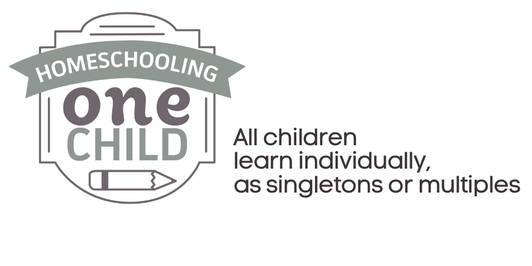



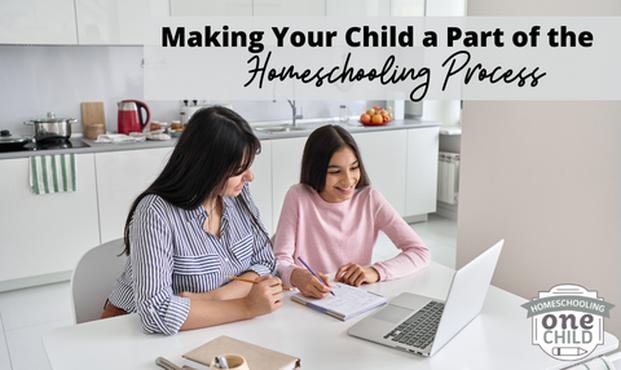
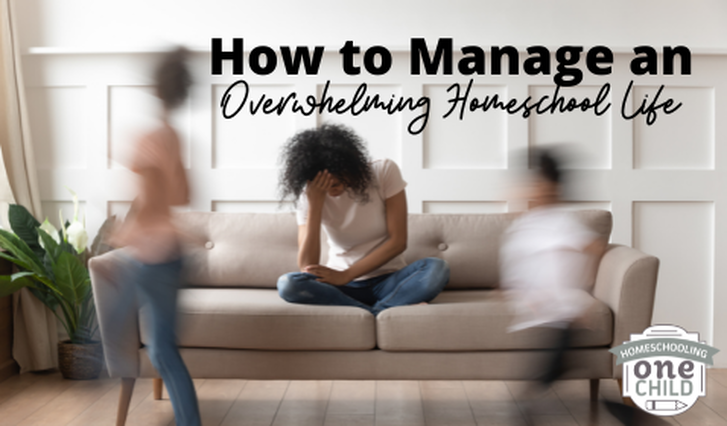




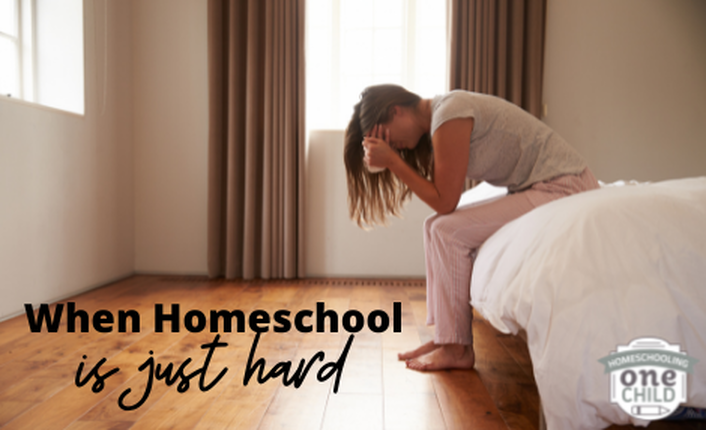
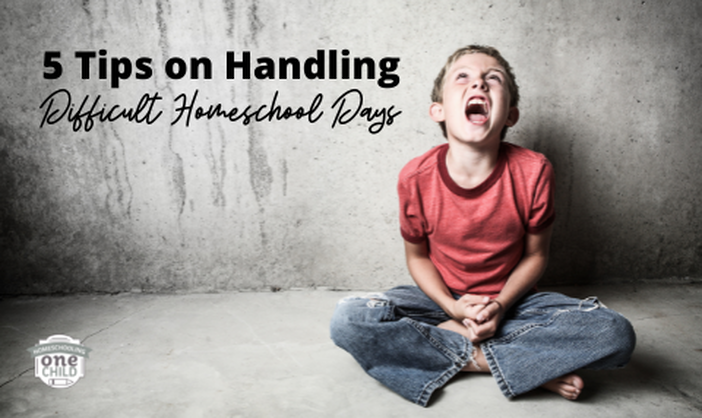


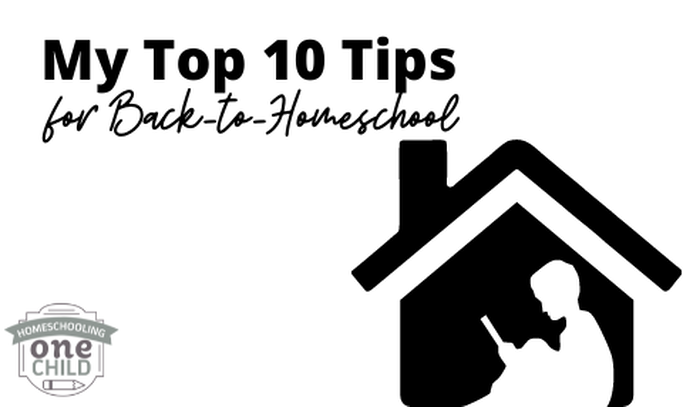
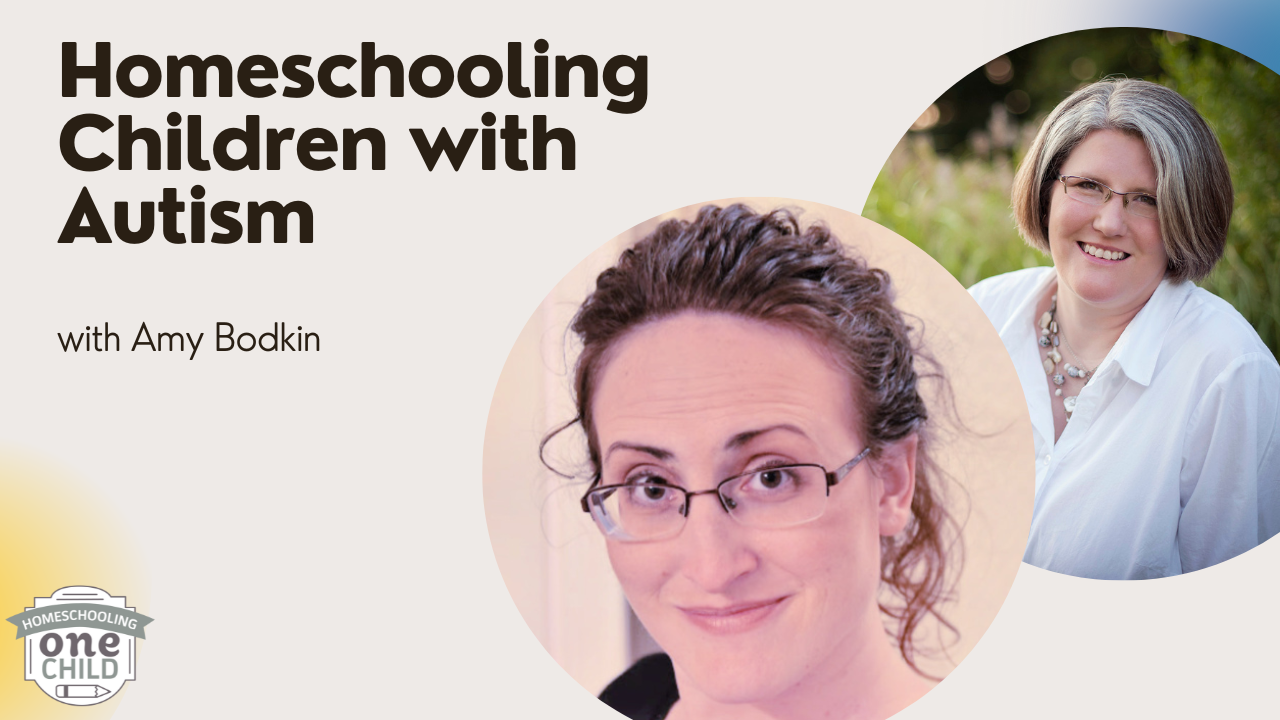
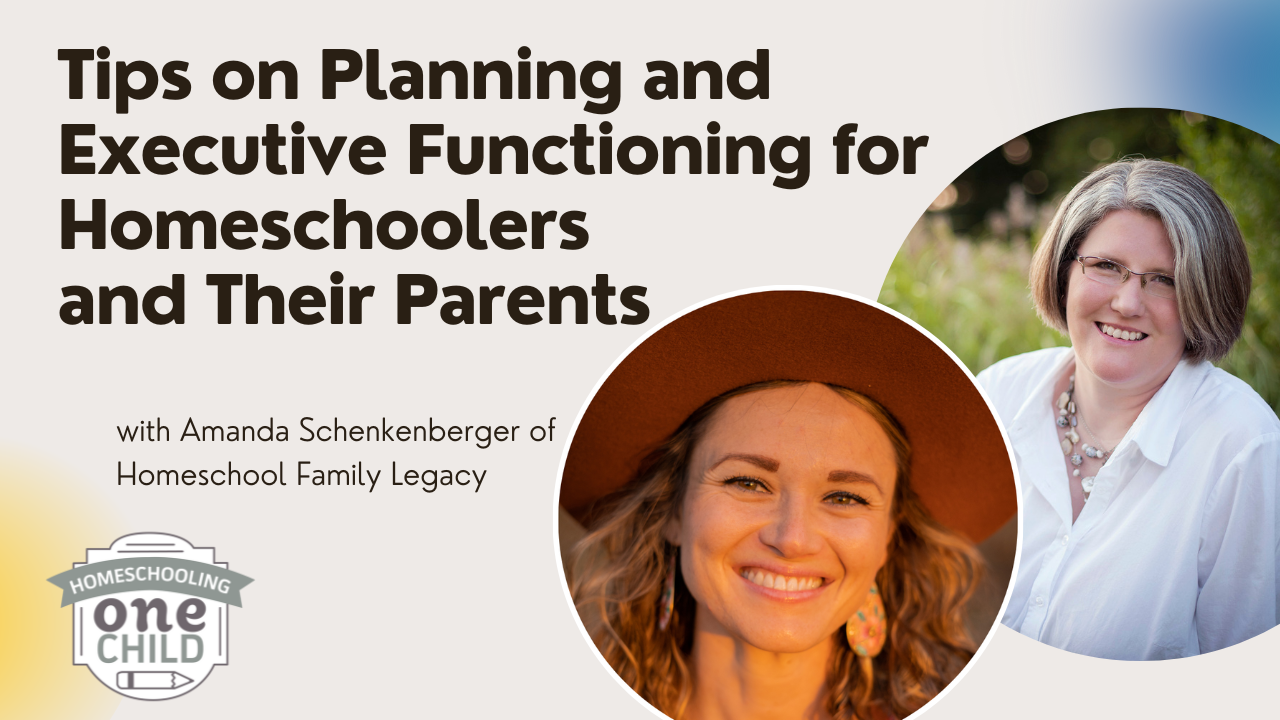

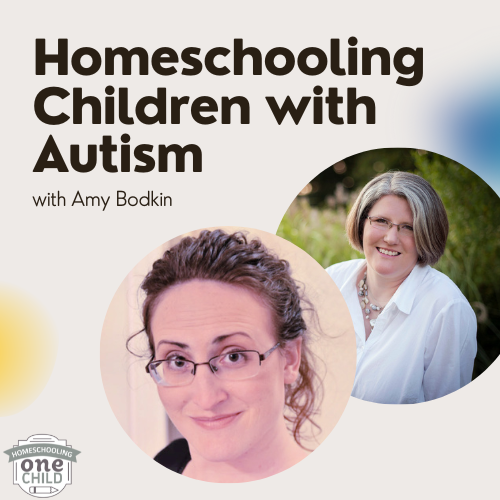
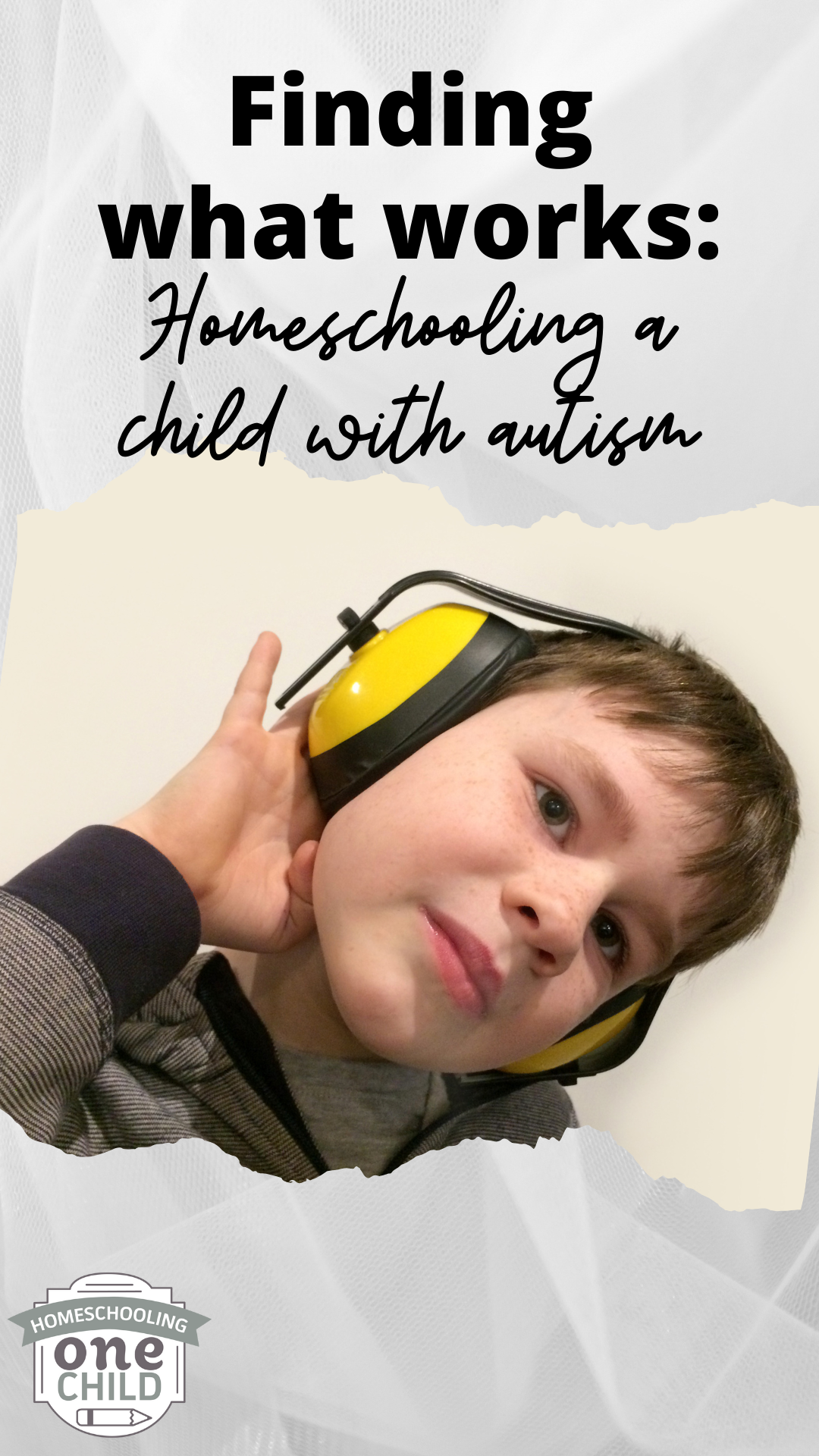
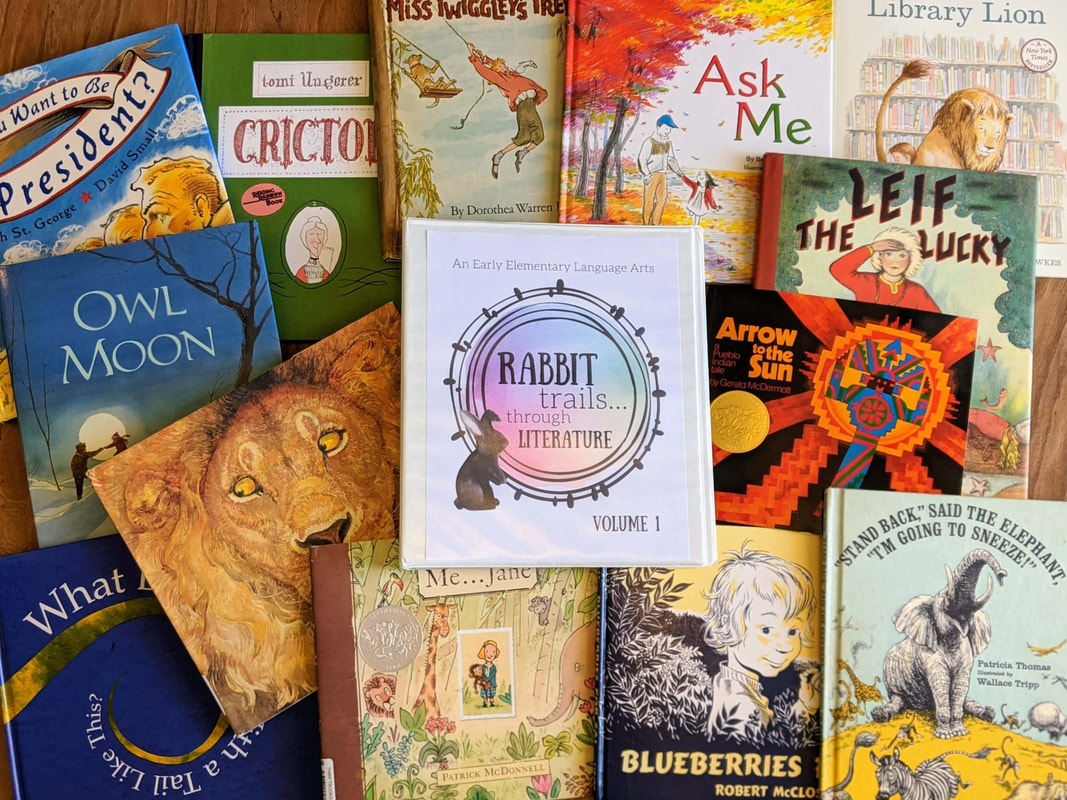
 RSS Feed
RSS Feed
